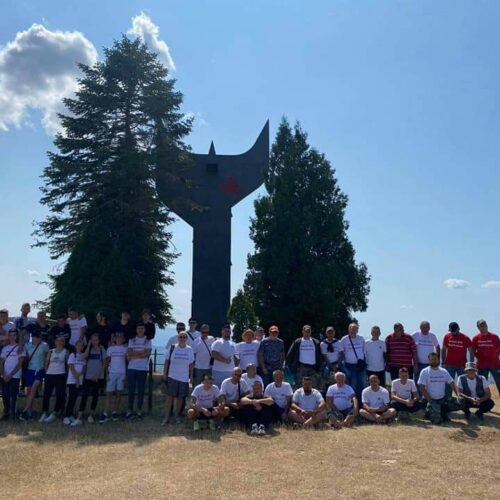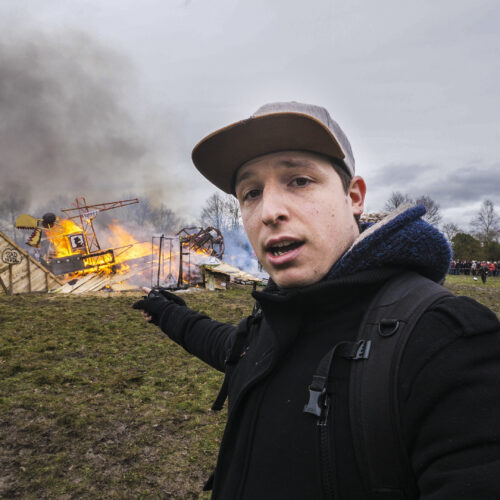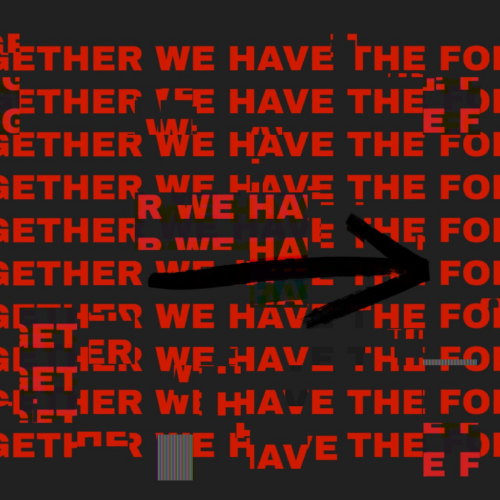Intersectional feminism is “a prism, for seeing the way in which various forms of inequality often operate together and exacerbate each other”. A systemic approach to taking on interconnected oppressions is working on various pressure points simultaneously, and before pressure is applied, making these interconnections apparent is what movement builders need to do. Solidarity is built when individual groups can step out of their silos and find ways to collaborate with others, even if their work revolves around a single form of oppression. Intersectional movement-building centres the expansive, collective vision, while finding functional forms of complementary, strategic action.
Some of our grantees model the theory in practice, the Camera Femina crew, for instance, organise film festivals and cultural events to challenge, entertain and educate audiences with ideas around identity, queerness, gender, feminist principles but do so in a lateral, non-didactic way. The spaces are open to everyone, events are free to overcome financial barriers and there is great care taken to address accessibility, either physical when choosing partner venues but also linguistic (e.g. via translations/sign language provision at events). The best way to advocate for acceptance is to create an accepting, accessible space and let people experience what acceptance feels like.
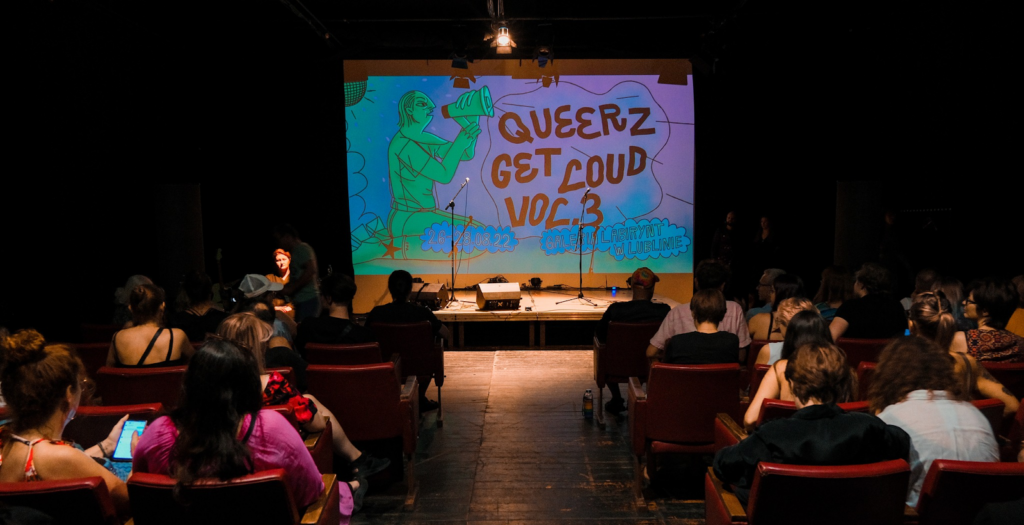
Similarly Alda, a Basque grassroots group which aims at defending working-class people’s rights, connects a lot of dots in the pursuit of holistic, working class justice. While improving the housing conditions in Basque Country is their long-term goal, one part of the larger vision of this group centers around involving low-income people & neighbourhoods in the wider social and ecological metamorphosis of the society. But when we zoom into the particular activities needed to get there, we find: 1) community-organising groups on housing, 2) free press newspaper to counter dominant media (35,000 copies), 3) awareness raising campaigning on ecological & climate issues 4) tangible bridge building with alternative industries (energy, transport, food, finance).
A Balkan sister example comes from the 8th of March Institute in Slovenia, where the initial focus of raising awareness around gender inequality blossomed into a multi-issue grassroots movement for various human rights campaigns. 8th of March first initiated the Slovenian #metoo (#jaztudi) campaign, which evolved into wider mobilisations around sexual health and reproductive rights within the country, countering the neoconservative tendencies of the current government from a systemic angle. This policy-oriented approach was translated into the Employment Relationships Act Amendment which supports the police officer trade union to protect rebel police officers who resist authoritarian state rule and are being disciplined by the state. The skills needed to mobilise people led the team to sway the political climate in the country overall, resulting in the win of the non-right wing candidate last year. They’re now actively holding the new president accountable who’s not right-wing but also not the left progressive they’d want – currently they are trying to prevent the privatisation of the health system.
A little further south in Italy, the Spore Collective have been researching how a Just Transition (socially & ecologically) might be supported with IT tools while connecting individual local struggles to national-level debates around putting these values into political infrastructure. They have been conducting virtual mapping of renewable energy projects while discussing the nuances in climate organising through a social justice lens. Whether it is the No TAP movement, Fridays for Future Italy, anti-extractivist or anti mega off-shore wind farm projects, they dissect the energy sector and expose neocolonial, greenwashed or top-down/undemocratic projects. In parallel they contribute to the ongoing public and bottom-up debate on energy, with commoning solutions and thus a much more comprehensive, intersectional narrative around a wider, Italian Just Transition.
In a related domain, Les Soulèvements de la Terre* (literally, Uprisings of the Earth) are a collective of different groups, organisations and people aiming to fight against agricultural lands’ commodification and monopolisation. Their grassroots-uniting credo states: “We all agree that the current situation is not sustainable and that we can’t wait for change to come from the established political regime. We also agree that NVDA (nonviolent direct action) climate justice actions are running out of steam.” They build solidarity from expansive vision framing and a disobedient standpoint/praxis. They delineate their two goals as the following:
- to gather people and groups from the climate change movement & people and groups of farmers into the same movement.
- redefining how we lead the fight, the actions we need to undertake, and pushing the limits beyond what we can legally do.
On June 21st 2023 Les Soulèvements de la Terre was administratively dissolved by government decree, as Macron’s cabinet deemed that the violence that the group encouraged during protests within the country, was criminal, unlike the violence done by the state and the corporations allied to it in polluting water systems, the soil or generating huge agricultural land monopolies – for these are permissible forms of violence under neoliberalism.
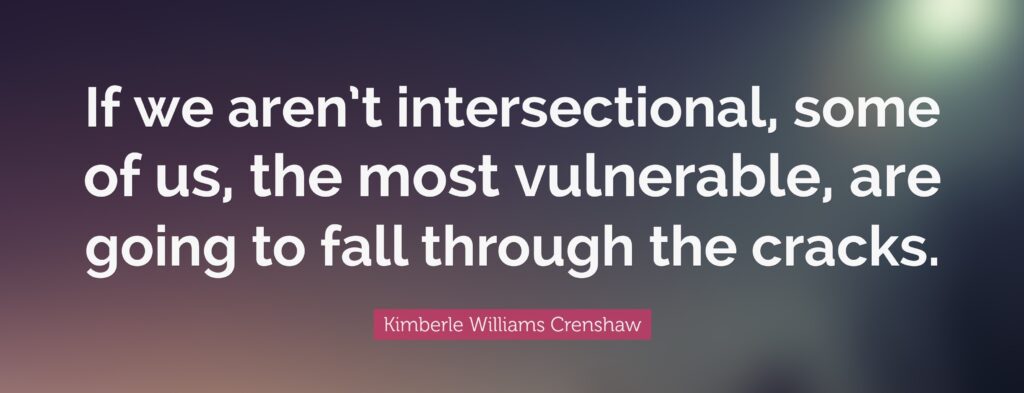
Intersectional movement building acknowledges one foundational tenet and that is “no one is free, until all of us are free” – and in this case, free from crony capitalism, free from environmentally harmful corporate drives, free from land theft, free from discrimination, free to have agency over our bodies, free to dissent against corrupt forms of power. Truly intersectional community organising is intrinsically systems-oriented because it already acknowledges the fact that we do not lead single-issue lives and that collective liberation depends on many oppressed communities uniting. It is the ultimate anti-siloization approach, one that looks at the root struggles and builds horizontal solidarity across classes, issues, borders and subcultures. It is sometimes slow, clunky, frustrating, complicated, however it is how we really try to walk the walk of ‘leave no one behind’.

